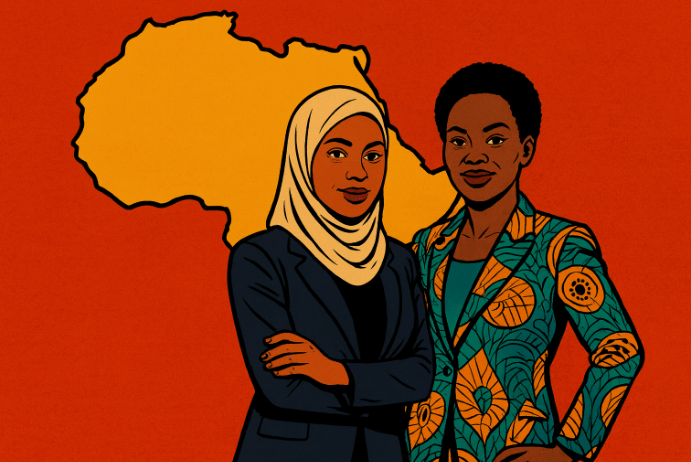Introduction
There is a youth bulge globally with Africa contributing the most to this demographic statistic. Youth in Africa constituted 19% of the global youth population in 2015, numbering 226 million. In Nigeria, about 75% of the 200 million population is less than 35 years old. With such vast human resource, it is expected that it will translate to enormous economic gains, however, the reverse seems to be the case. There has not been much entry of youth into the labour market; hence, their contribution to the global economy, minimal. There is rising youth unemployment leading to an increase in violent crimes as young people seek alternatives to engage their agencies.
Nigeria’s unemployment rate in Nigeria is about 50% with about 90% of that percentage being youth. This statistic keeps rising every day as more young people are forced into the labour market from either secondary or tertiary institutions. Ultimately, the unemployment rate in Nigeria is one that calls for concern; whether it is a problem of scarcity of job, difficult entry into jobs for youth, lack of skills or lack of entrepreneurial drive and support, it is evident that immediate measures are needed to curtail this menace.
Reevaluating the Problem
There is a problem of lack of employability skills proficiency and sellable skills as well as the problem of job scarcity. Requisite employability skills required for entry into jobs is generally lacking among job seekers partly because the educational system does not sufficiently prepare them. Due to the harsh realities of the African economy, secondary school leavers enter the labour market unprepared and often end up in the dark economy of vulnerable employment. A job seeker is unable to think critically, possesses little or no sellable skills, and often has no respect for the dignity of labour with a value system warped by extreme materialism. Even most of the secondary school graduates who gained admission into higher educational institutions demonstrate visible unpreparedness for higher education.
As a graduate, the competition for available jobs is remarkably high, a situation where there are more job seekers than the labour market can accommodate. To put it more into context, in Nigeria, about 1 million people join the labour force with just about 500,000 jobs being added annually. The government seem overwhelmed and over time, there has been little or no visible political will from the part of the government to tackle youth unemployment.
Although some youth have taken the initiative to engage in entrepreneurial activities, most of these Micro, small and medium enterprises (MSMEs) fail within the first two years due to inadequate funding, unfavourable government policies, poor management as well as competition or lack of market knowledge.
How is job creation, entrepreneurship and vocational skills acquisition encouraged amongst the youth? What measures are being put in place to ensure that there is an environment for job creation and for MSMEs to thrive? What laws are being put in place to reduce the interest rate for loans collected by MSMEs or what laws are being made mandating some institutions to support MSMEs as part of their CSR?
Youths as change agents
Youth has gained wide currency and has been variously classified into such age brackets as 15-24 years (World Bank and United Nations); 15-29 years (Commonwealth); while for many countries, the figure varies from 13-18 years, 20-25 years, and 12-20 years. In Nigeria, youth is defined as people aged between 18 and 35, and they constitute all young males and females aged 18-35.
Youth-hood can be defined as that phase or period of life in which one passes from childhood to maturity. Maturity, on the other hand, refers to a situation whereby one becomes fully developed.Young people serve as a good measure of the extent to which a country can reproduce as well as sustain itself; they have been described as the greatest asset and investment for a nation’s development. They are the foundation of a society; their energies, resourcefulness, character, and orientation define the pattern of development and security of a nation. The youth are a segment of the national population that is sensitive, energetic, active and the most productive phase of life as citizens. The youth are also the most volatile and yet the most vulnerable segment of the population in terms of social-economic, emotion and other aspects.
When the agencies of youth are not being productively engaged, there are tendencies that these agencies will be used negatively to foster violence or other vices; in Nigeria, unemployment has been linked directly to violence. Unemployment is not only an economic burden but may also have an emotional and psychological effect on job seekers. For a young graduate, it becomes emotionally draining combing the streets in search of a job that seems unreachable.
Recommendations
To overcome the personal challenges occasioned by unemployment, it is important to pay attention to personal development by seeking out avenues for employability skills training as well as hands-on skills development. The future of work is upon us and it is changing with the times; employees are looking to hire not only those with high intelligence quotient but also high emotional quotient. Therefore, it is important to develop emotional intelligence, leadership and life skills that are useful for success in the labour market e.g., digital skills.
As a matter of urgency, there needs to be a shift from only theory-based teaching approach in tertiary institutions to a practical and problem-based approach. The curriculum design should be relevant to the times and must give avenues for students to engage their agencies in critical thinking and problem-solving. Entrepreneurship and vocational studies as career alternatives must be introduced early to students to provide them with a wider range of career choices.
Internships should be made mandatory for all students before the completion of their study period as this will expose them to realities of the world of work. The internship experience will help develop their soft skills as well as other skills relevant for excellence in the workplace.
In the past, despite the myriad policies and programs initiated by successive Nigerian Government, such as National Economic Empowerment and Development Strategy (NEEDS), Subsidy Reinvestment and Empowerment Programme (SURE-P), National Directorate of Employment (NDE), National Youth Service Corps (NYSC) schemes in Nigeria, as lofty and laudable as they seem, their inability to affect the real target (Youth), reflects the lacuna between policy formulation and implementation. This means that deliberate action must be taken in the direction of youth-led MSMEs as these businesses account for 75% of Nigeria employment.
The society, unfortunately, has fueled greed by celebrating ill-gotten wealth and flamboyance equating it to success thereby encouraging young people to follow the same trend. It is important to note that there are no quick fixes and there is dignity in labour; if one must become, then one must go through the process. Young people must, therefore, shun vices and embrace hard work and good work ethics as a way of life.
By Osagie Enohonfoh



